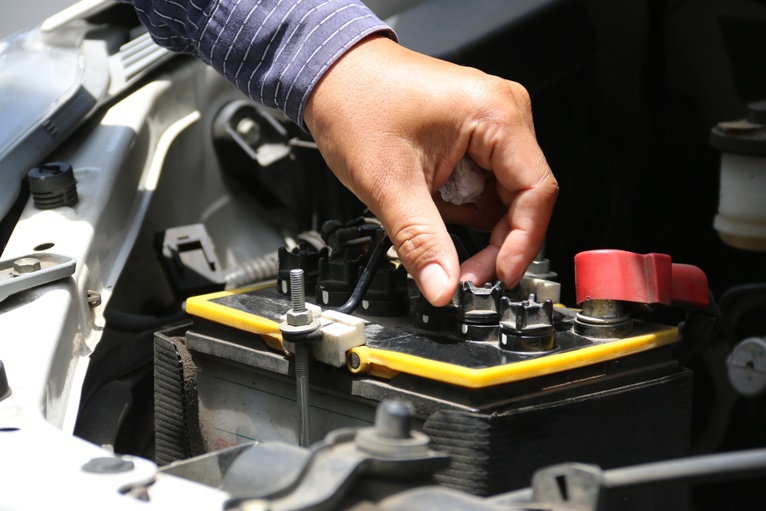Lithium Iron Phosphate Battery Prices: What You Need to Know
Lithium iron phosphate (LiFePO4) batteries are becoming increasingly popular in the energy storage industry due to their excellent safety record, long lifespan, and high energy density. As with any new technology, the cost of LiFePO4 batteries has been a major barrier to their widespread adoption. However, as production has increased and economies of scale have kicked in, prices have started to come down. In this article, we will explore the current state of LiFePO4 battery prices and what factors are driving their cost.
First, it is important to understand the key components of a LiFePO4 battery. The battery consists of a cathode (positive electrode), an anode (negative electrode), a separator, and an electrolyte. The cathode is made up of lithium iron phosphate, while the anode is typically made of graphite. The separator is a thin layer of material that keeps the cathode and anode from touching, while the electrolyte is a solution that allows ions to move between the electrodes during charging and discharging.
The cost of a LiFePO4 battery is primarily determined by the cost of its materials. The most expensive component is the cathode, which is made up of lithium iron phosphate, a relatively rare material that must be mined and refined. Other factors that affect the cost of LiFePO4 batteries include the size and complexity of the battery, the number of cells it contains, and the quality of the components used.
The price of LiFePO4 batteries has fallen significantly over the past decade, and is expected to continue to decline in the coming years. In 2010, the cost of a LiFePO4 battery was around $3,000 per kWh, while today it is closer to $200-300 per kWh. This dramatic drop in price is largely due to improvements in manufacturing processes, economies of scale, and increased competition.
One of the main factors driving down the cost of LiFePO4 batteries is the increasing use of automation in the manufacturing process. As more companies invest in automated production lines, they can produce batteries more quickly and efficiently, reducing labor costs and improving quality control. Additionally, innovations in battery design and chemistry are making LiFePO4 batteries more efficient and reliable, which is helping to lower costs even further.
Another key factor in the declining cost of LiFePO4 batteries is economies of scale. As production has increased, the cost of materials and components has fallen, making it more affordable to manufacture larger and more powerful batteries. This has led to the development of new applications for LiFePO4 batteries, such as in electric vehicles, which require large, high-capacity batteries.

Despite the recent price drops, LiFePO4 batteries are still more expensive than other types of batteries, such as lead-acid or nickel-cadmium batteries. However, LiFePO4 batteries offer several advantages over these other technologies, including longer lifespans, higher energy densities, and better safety records. As the market for energy storage continues to grow, it is likely that LiFePO4 batteries will become increasingly competitive with other battery types in terms of cost.
In conclusion, the cost of LiFePO4 batteries has dropped significantly in recent years, making them more affordable for a wider range of applications. Factors driving down the cost include improved manufacturing processes, economies of scale, and innovations in battery design and chemistry. While LiFePO4 batteries are still more expensive than other types of batteries, their superior performance and safety make them an attractive option for energy storage applications. As production continues to increase and new applications emerge, it is likely that LiFePO4 battery prices will continue to fall.
-
 LiFePO4 batteries are becoming increasingly popular in various applications, including electric vehicles, renewable energy storage, and backup power systems. These batteries are known for their high energy density, long cycle life, and excellent safety performance. In this article, we will discuss the durability and reliability of LiFePO4 batteries and explain why they have a longer lifespan compared to other battery...Read more
LiFePO4 batteries are becoming increasingly popular in various applications, including electric vehicles, renewable energy storage, and backup power systems. These batteries are known for their high energy density, long cycle life, and excellent safety performance. In this article, we will discuss the durability and reliability of LiFePO4 batteries and explain why they have a longer lifespan compared to other battery...Read more -
 Introduction LiFePO4 batteries have gained immense popularity over the years due to their advanced features and benefits. These batteries are known for their high efficiency, long-lasting power, and excellent performance. They are ideal for various applications, including electric vehicles, solar energy storage, and portable power supplies. In this article, we will discuss in detail the benefits of using 12V LiFePO4...Read more
Introduction LiFePO4 batteries have gained immense popularity over the years due to their advanced features and benefits. These batteries are known for their high efficiency, long-lasting power, and excellent performance. They are ideal for various applications, including electric vehicles, solar energy storage, and portable power supplies. In this article, we will discuss in detail the benefits of using 12V LiFePO4...Read more -
 Introduction: In recent years, there has been a growing concern about environmental sustainability and the need for more efficient power solutions across various industries. The forklift industry is no exception, as it plays a vital role in material handling operations. Traditionally, forklifts have been powered by lead-acid batteries, which have several limitations. However, with the advancement in technology, the introduction...Read more
Introduction: In recent years, there has been a growing concern about environmental sustainability and the need for more efficient power solutions across various industries. The forklift industry is no exception, as it plays a vital role in material handling operations. Traditionally, forklifts have been powered by lead-acid batteries, which have several limitations. However, with the advancement in technology, the introduction...Read more -
 As technology continues to advance, so do the batteries we use to power our devices. Lithium iron phosphate (LiFePO4) rechargeable batteries are a relatively new technology that offers significant benefits over traditional lead-acid batteries. In this article, we will discuss the advantages of LiFePO4 rechargeable batteries, their lightweight design, high energy density, compact size, and easy mobility. Advantages of LiFePO4...Read more
As technology continues to advance, so do the batteries we use to power our devices. Lithium iron phosphate (LiFePO4) rechargeable batteries are a relatively new technology that offers significant benefits over traditional lead-acid batteries. In this article, we will discuss the advantages of LiFePO4 rechargeable batteries, their lightweight design, high energy density, compact size, and easy mobility. Advantages of LiFePO4...Read more -
 Introduction In recent years, the demand for efficient and reliable power storage solutions has been on the rise. This is particularly true in industries such as renewable energy, electric vehicles, and telecommunications. One technology that has gained significant attention is the Lithium Iron Phosphate (LiFePO4) 48V battery. This article aims to explore the features, advantages, and applications of this battery...Read more
Introduction In recent years, the demand for efficient and reliable power storage solutions has been on the rise. This is particularly true in industries such as renewable energy, electric vehicles, and telecommunications. One technology that has gained significant attention is the Lithium Iron Phosphate (LiFePO4) 48V battery. This article aims to explore the features, advantages, and applications of this battery...Read more -
 In recent years, lithium ion batteries have become increasingly popular as a source of energy for various applications, from powering electric vehicles to storing solar power for homes. Among the different types of lithium ion batteries, the Lithium Iron Phosphate (LiFePO4) 48V battery stands out for its unique features and advantages. In this article, we will explore what LiFePO4 48V...Read more
In recent years, lithium ion batteries have become increasingly popular as a source of energy for various applications, from powering electric vehicles to storing solar power for homes. Among the different types of lithium ion batteries, the Lithium Iron Phosphate (LiFePO4) 48V battery stands out for its unique features and advantages. In this article, we will explore what LiFePO4 48V...Read more -
 Agriculture plays a crucial role in global food production, and advancements in technology have significantly transformed the industry. One such innovation is the use of high-power lithium batteries for agricultural tools. These batteries have revolutionized the efficiency and productivity of farming practices, offering numerous benefits to farmers. In this article, we will explore the advantages of high-power lithium batteries in...Read more
Agriculture plays a crucial role in global food production, and advancements in technology have significantly transformed the industry. One such innovation is the use of high-power lithium batteries for agricultural tools. These batteries have revolutionized the efficiency and productivity of farming practices, offering numerous benefits to farmers. In this article, we will explore the advantages of high-power lithium batteries in...Read more

